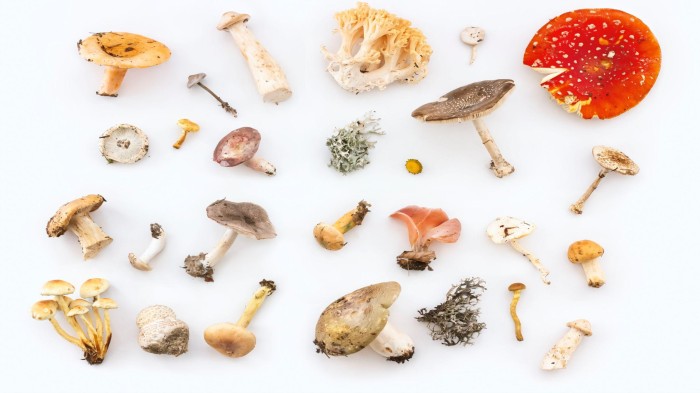
Mushrooms are an excellent low-calorie protein source, offering all essential amino acids. Plus, they contain beneficial compounds like beta-glucans that provide additional health benefits.
Lion’s mane (Hericium erinaceus) mushrooms are currently being researched for their ability to regenerate nerves and enhance cognitive performance, in addition to being naturally low in sodium and fat content.
Antioxidants
Mushrooms are low-calorie, nutritious foods packed with natural plant compounds that support our immune systems.
Mushrooms contain antioxidants that scavenge free radicals which cause damage to cells and lead to disease; plus mushrooms provide selenium which aids the body in producing its own antioxidants to prevent cell damage. You can visit this site for more information on antioxidants.
Mushrooms can be an excellent source of both ergothioneine (ERGO) and glutathione, which help control oxidative stress from free radicals in mitochondria and promote cell renewal.
Furthermore, mushrooms provide one of the richest sources of selenium, an essential mineral that may protect against lung, prostate, and breast cancers.
Many types of mushrooms have been discovered to possess powerful anti-inflammatory, immunity, and brain-enhancing effects. Some of the best mushrooms for health are widely available. Shiitake and portobello mushrooms were shown to improve immune system performance while Reishi, Chaga, and Turkey Tail mushrooms can prevent and treat cancer while simultaneously stimulating immune cells to kill off bacteria and viruses that threaten us all.
Mushrooms contain selenium which isn’t available in many fruits and vegetables. Researchers have developed biofortified mushrooms with organic selenium which may serve as functional food additives against oxidation and pathogenic organisms.

Vitamin D
Mushrooms are an excellent food source of vitamin D, an essential nutrient that is hard to come by elsewhere. Vitamin D assists the body in absorbing calcium for bone strength and can prevent dementia, Type 2 diabetes, and early mortality risks.
Mushrooms contain ergosterol, which converts into vitamin D2 when exposed to sunlight or UV radiation, providing them with a potential source of vitamin D for vegetarian and vegan lifestyles.
Researchers have discovered that mushrooms may provide up to 50-100% of our daily vitamin D needs depending on how they are grown and their sun exposure. Adequate vitamin D supports bone health while simultaneously aiding immune regulation and metabolism regulation.
To increase vitamin D from mushrooms, place one portabella mushroom and three smaller white button or cremini mushrooms outside for at least an hour midday in direct sunlight – they may turn brown but won’t lose any other essential nutrients!
Selenium
Mushrooms contain selenium, an important antioxidant for thyroid function and cancer protection, vitamin D to strengthen bones, and an excellent source of B6 as well as fiber.
Adults aged 19 and up require 55 micrograms of selenium daily, with pregnant women needing 60-70 micrograms daily. Foods naturally rich in selenium such as seafood, organ meats, and Brazil nuts contain plenty of this mineral; mushrooms can help ensure you’re getting enough selenium! You can click the link: https://en.wikipedia.org/wiki/Selenium to learn more.
Mushrooms contain natural organic forms of selenium such as selenomethionine which is more bioavailable than its inorganic form selenite, thus increasing the bioavailability of selenium.
While methods have been devised to increase selenium levels in cultivated species, further research is required in order to optimize the dose and method of substrate amendment; the efficacy of mushrooms depends on their species, biological efficiency, as well as their morphological and chemical characteristics.
Other qualities up for study are selenoproteins distribution, native antioxidant content, biomass yield, and organoleptic evaluation Finally, selenium-enriched mushrooms should become available commercially in the market as multifaceted value-added products.
Fiber
Mushrooms are low in calories but high in dietary fiber, making them a delicious way to manage your weight by helping you feel satiated more quickly and keeping a steady diet.
A cup of cooked mushrooms can provide 3.4 grams of dietary fiber for only 44 calories! While the exact content varies slightly between varieties of mushrooms, all contain significant quantities.
Mushroom diet fiber contains water-insoluble polysaccharides such as chitin and beta-glucan that feed gut microbiota, supporting regularity in digestion and an overall healthier digestive system.
One study published in Nutrition and Cancer demonstrated the beta-glucan contained within mushrooms has anti-inflammatory and immune-enhancing effects according to findings in their lab tests in 2010.
Adults need 25 to 38 grams of fiber daily for optimal health. A cup of cooked mushrooms can provide between 9-14% of your daily soluble fiber requirements.
Protein
Mushrooms are low in calories while packing an abundance of essential vitamins, minerals, and phytochemicals into every bite.
Mushrooms provide B vitamins such as folate which is crucial in producing red blood cells for brain health; additionally, they contain the naturally occurring nutrient selenium which may protect against cardiovascular disease, cognitive decline, and cancer.
Mushroom proteins provide all essential amino acids, making them an excellent plant-based source of protein. Mushrooms are especially abundant in branched-chain amino acids – essential components in muscle health and recovery processes.
Certain varieties of mushrooms, like Lion’s Mane, are becoming increasingly popular as nootropic supplements due to their cognitive and neuroprotective benefits. Studies indicate that Lion’s Mane supports nerve cell growth while potentially helping prevent and reverse symptoms associated with neurological diseases like Alzheimer’s and Parkinson’s.
Lion’s Mane contains compounds known as hericenones and erinacines thought to stimulate nerve growth Factor synthesis within neurons as well as vitamin D produced through exposure to sunlight just like our skin does, and Choline which plays an essential part in brain cell membrane formation.
Mushrooms are a naturally occurring food that offers numerous health benefits to consumers. These are readily available and, best of all, new benefits are being discovered all the time!
Must Read the Related Article: Turkey Tail: The Versatile Mushroom with Powerful Health Benefits
